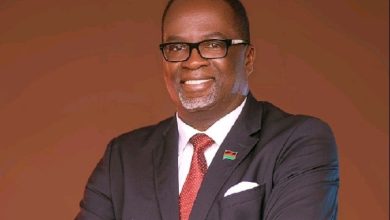IMF guides Malawi on economic management
International Monetary Fund (IMF) has asked the Malawi Government to pay attention to its 2025 Article IV Staff Report because it provides policy recommendations in fiscal, monetary and financial, external and structural areas.
The advice from IMF resident representative Nelnan Koumtingue has come at a time an IMF Mission is in the country from Monday to Friday holding talks with Malawi on a fresh economic programme.

It is the first time the IMF team has visited Malawi since May when the country’s four-year $175 million (about K306 billion) Extended Credit Facility (ECF), secured in November 2023, collapsed and was terminated due to failure to submit progress reports.
Koumtingue, in a written response, said the IMF Mission is here to take stock of recent developments and Malawi’s policies to support macroeconomic stability.
He said: “The IMF supports the member country’s own programme with advice and financing. Country authorities are expected to develop the details of their macroeconomic adjustment programme.
“For countries in Malawi’s situation, it is important to establish strong ownership of their programme and demonstrate a track-record of policy implementation. The 2025 Article IV Staff Report offers some guidance on policy recommendations in the fiscal, monetary and financial, external and structural areas.”
Major obstacles to clinching a new ECF at least in the context of the fund’s 2025 Article IV consultation with Malawi include the exchange rate policy.
In Article IV, the fund is advising an end to currency fixing while the new Peter Mutharika administration, ushered into office following victory in the September 16 2025 General Election, has vowed it will not devalue the kwacha.
While the IMF states that a more flexible, market determined rate—which in the case of Malawi can largely be achieved through devaluation and then floatation—would help support macroeconomic stability and assist the economy to absorb shocks while rebuilding foreign reserves, the Mutharika administration says such a move could sharply raise prices and worsen inflation.
Speaking at the 2025 Economics Association of Malawi Annual Economic Conference in Mangochi last week, Minister of Finance, Economic Planning and Development Joseph Mwanamvekha boldly said devaluation is not a solution to Malawi’s foreign exchange challenges.
He said in its discussions with the IMF team, government has agreed to have a “cocktail” of policies to address foreign exchange challenges.
Said Mwanamvekha: “We need to have policies that can address foreign exchange shortages both on the supply and demand side as devaluation is not a panacea. Devaluation without supply will not address the problem.
“Areas that can be addressed are on money supply, which is currently at 70 percent, huge amounts of money chasing dollars on the black market and some policies will be unconventional where we want to deal with public expenditure in regards to forex availability.”
In an interview yesterday, Mzuzu University (Mzuni) based economist Christopher Mbukwa said he appreciated government’s reluctance to devalue the kwacha because doing so would lead to unprecedented price hikes.
He said: “This would mostly affect key commodities like fuel and fertilisers which would diminish the welfare of a common Malawian. Unfortunately, the imbalance and shortages in the forex market seem to persist.
“The new government must ensure a solution is found; one way is to address the supply constraints, since devaluing the kwacha seems to be unpalatable.”
In an earlier interview, financial analyst Sylvester Malumba argued that keeping the exchange rate artificially fixed only deepens foreign-exchange shortages and fuels the very inflation government believes can be tamed with a fixed kwacha.
In May 2022, the Reserve Bank of Malawi (RBM) implemented a 25 percent devaluation of the kwacha purportedly to align the currency with the parallel market rate and attain its true value.
The central bank further devalued the kwacha by 44 percent in November 2023, but both decisions saw the parallel rate gap widening further.





